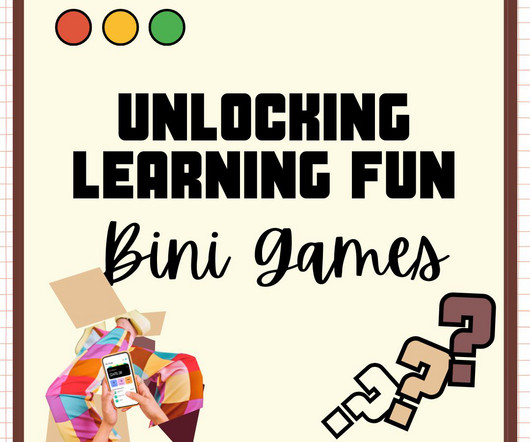I’m a Neuroscientist. Here’s How Teachers Change Kids’ Brains.
Edsurge
FEBRUARY 19, 2019
While we often don’t think of ourselves as brain changers, when we teach we have an enormous impact on our students’ cognitive development. For example, the predominant language (or languages) and familiar faces, voices and objects will become the data the brain uses to build new cortical maps and their interconnections.















Let's personalize your content